Top 10 Best Coffee-Brands for Exciting Mind | coffee
For the vast majority of us, the importance of the morning cup of coffee cannot be overstated. The breakfast beverage not only gives you a daily energy boost; it's often the first thing you taste after your toothpaste. Poor quality coffee can ruin your day, while tasty coffee can give you a great start. In today's world of depressing news, there's no time to waste on a bad cup of coffee.
The National Coffee Association estimates that 62% of Americans drink coffee and on average, these consumers drink about three cups a day. That's a lot of coffee flowing in coffee shops and at home. The way Americans consume their caffeine is constantly evolving, but there are a handful of brands, roasters, and producers that have remained the most popular purveyors of coffee for years, even decades. Some of them rightly deserve a place in the American appetite. Others need a little more explanation. This list highlights the position of the most well-known coffee brands, in our humble opinion.
1/ Stumptown Coffee Roasters
 |
| Stumptown Coffee Roasters |
Stumptown Coffee Roasters is a coffee roaster and retailer based in Portland, Oregon, USA. The chain's flagship coffee shop and roastery opened in 1999. Since then, three other coffee shops, a roastery, and a tasting annex have opened in Portland, as well as in Seattle, New York, Los Angeles, Chicago, and New Orleans. Stumptown is owned by Peet's Coffee, which in turn is owned by JAB Holding Company. The company was an early innovator in offering cold brew coffee in nitro cans and has continued to develop other cold brew product innovations.
Founder Duane Sorenson and Stumptown Coffee Roasters have been labeled as part of the third wave of the coffee movement.
Sorenson and his employees visited coffee farms in person and reportedly paid high prices for beans, sometimes three or four times the fair trade price. He once set the record for the highest price ever paid for coffee beans.
Sorenson also offered atypical benefits to his employees, such as paying for a compilation album of their various bands and hiring a full-time massage therapist. Stumptown has received numerous awards, including the 2006 Coffee Roaster of the Year.
In 2015, Stumptown Coffee Roasters was acquired by Peet's Coffee for an undisclosed amount.
Stumptown operates five coffee shops in Portland. They are located at SE 45th & Division St., SE 34th & Belmont, downtown at SW 3rd & Ash St., inside the Ace Hotel at 1022 SW Stark Street, and at Portland International Airport. The company also has a roasting facility and retail annex inside its headquarters at 100 SE Salmon St. The original location on SE Division was formerly a hair salon called "The Hair Bender," whose name Stumptown adopted for one of its espresso blends.
In November 2007, Stumptown opened two coffee shops in Seattle. In September 2009, the company also opened a café at the Ace Hotel in New York City. A temporary "pop-up" location appeared in Amsterdam's De Pijp district in May 2010. Opened by Sorenson, it claimed it was never intended to be permanent and closed the same year.
In 2013, Stumptown opened a second café in New York City and a café/roaster in Los Angeles. In January 2014, the company began selling coffee, pre-mixed with milk, in grocery stores. Other coffee shops also opened in Chicago and New Orleans. Stumptown opened its third New York cafe in a historic Brooklyn firehouse in the summer of 2018.
2/ Intelligentsia Coffee & Tea
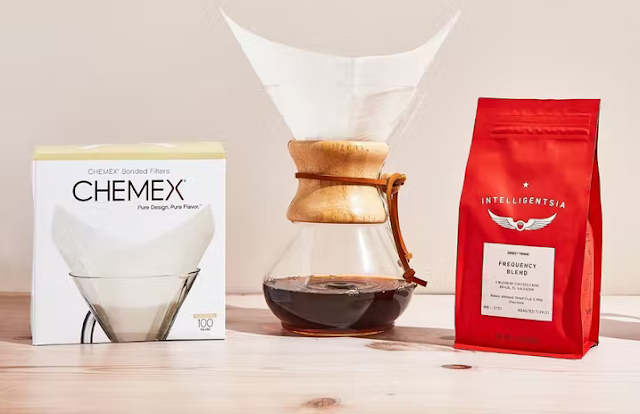 |
| Intelligentsia Coffee & Tea |
Intelligentsia Coffee is an American coffee roasting and retailing company based in Chicago, Illinois. Founded in 1995 by Doug Zell and Emily Mange, Intelligentsia is considered a leading exponent of third-wave coffee. In 2015, Peet's Coffee & Tea (itself part of JAB Holding Company) acquired a majority stake in the company.
In addition to its headquarters at 1850 W. Fulton Street, Intelligentsia owns several retail coffee shops throughout the Chicago area. They supply coffee to various cafes and restaurants in the Chicago area, as well as other locations in the United States and Canada. They typically purchase their beans directly from growers in Central America, South America, East Africa, and Ethiopia. They currently operate [when?] four Ideal Rapid Gothot gas roasters at the Chicago Roasting Works. Two 90-kilo roasters and one 23-kilo roaster are in Chicago and one 40-kilo roaster is in Los Angeles. The machines date back to the 1950s and were handcrafted from cast iron and steel in Stuttgart, Germany.
On August 17, 2007, Intelligentsia opened its first store outside of Chicago at Sunset Junction in Silver Lake, a neighborhood east of Hollywood in Los Angeles, California. Intelligentsia opened two more stores in the Los Angeles area, in Venice and Pasadena. In 2013, Intelligentsia opened its first store in New York City, inside the High Line Hotel. The second New York store opened in June 2014, inside Urban Outfitters in Herald Square. It is the first store to offer a full food menu. There are also two stores in Boston and one in Austin, Texas. The decision in 2008 to stop serving 20-ounce coffee and espresso in the stores was controversial. Zell said proportions are altered at such quantities and some drinks become watered down, arguing that 20-ounce drinks end up "masking and altering the pure, intense flavors we work hard to source, roast, and produce. We don't want it to be simply a caffeine delivery device."
In 2009, Intelligentsia acquired Ecco Caffè of Santa Rosa, California, and retained the brand.
In October 2015, it was announced that Peet's Coffee & Tea would purchase a majority stake in Intelligentsia Coffee & Tea by the end of the year, as part of a Peet's expansion into third wave coffee that also involved the acquisition of Stumptown Coffee Roasters. Intelligentsia was to continue to operate independently, with founders Zell and Mange retaining a role in the business. The announcement came weeks after Intelligentsia reported that it was seeking a private equity buyout for more than $100 million.
3/ Lavazza
 |
| Lavazza |
Luigi Lavazza S.p.A., abbreviated and styled as LAVAZZA, is an Italian manufacturer of coffee products. Founded in Turin in 1895 by Luigi Lavazza, it was initially run from a small grocery store in Via San Tommaso 10. The company (in Italian: S.p.A.) is currently managed by the third and fourth generations of the Lavazza family.
Lavazza imports coffee from all over the world, including Brazil, Colombia, Guatemala, Costa Rica, Honduras, Uganda, Indonesia, the United States, and Mexico.
Dubbed "Italy's favorite coffee," the company claims that 16 million of the 20 million families buying coffee in Italy choose Lavazza. Current offerings include Qualità Oro, Qualità Rossa, Club, Caffè Espresso, Il Perfetto Espresso, Caffè Crema, Gran Aroma Bar, Super Crema, Crema e Gusto, Crema e Aroma, Top Class, Grand'Espresso, Dek (decaffeinated), and A Modo Mio, Espresso Point and Lavazza Blue coffee capsules. Lavazza also produces Nespresso compatible capsules (NCC).
Lavazza was founded in Turin, Italy, in 1895 and has been owned by the Lavazza family for four generations. The world's seventh-largest coffee roaster, Lavazza has a market share in sales of more than 36% in Italy, employs 3,800 people, and has sales of €2.24 billion (2019). The company has six production sites, three in Italy and three abroad, and operates through associated companies and distributors in over 90 countries. Lavazza exports 46% of its production. Lavazza takes credit for having invented the concept of blending, "the art of combining different types of coffee from different geographical areas", in its early years, and claims it as a distinguishing characteristic of all its products. The company also has 25 years of experience in the production and sale of portioned coffee systems. Today, thanks to ongoing partnerships with an international network of universities and scientific research centers, Lavazza operates four platforms in this segment. In 1979, the company created the "Luigi Lavazza Center for Coffee Research" which is "dedicated to the study of espresso" and has evolved into the Lavazza Training Centre, a network of more than 50 coffee schools around the world, where 30,000 people receive training every year.
Among the activities promoted by the Lavazza Foundation, created in 2002, is the Tierra project, which, in partnership with the Rainforest Alliance, conducts research to achieve the "best quality of the final product", focusing on the living conditions of the populations of coffee-producing countries.
Lavazza is the official coffee of the Italian pavilion at Expo 2015 in Milan.
Lavazza acquired the Carte Noire and Merrild brands from Jacobs Douwe Egberts in February 2016.
Lavazza purchased an 80% stake in the Canadian company Kicking Horse Coffee in May 2017.
In 2019, along with PepsiCo, Lavazza launched a ready-to-drink canned cappuccino in Europe.
A lawsuit was filed in 2019 alleging that Lavazza filed false intellectual property lawsuits against U.S. resellers on Amazon.com to prevent them from reselling products.
4/ Caribou Coffee
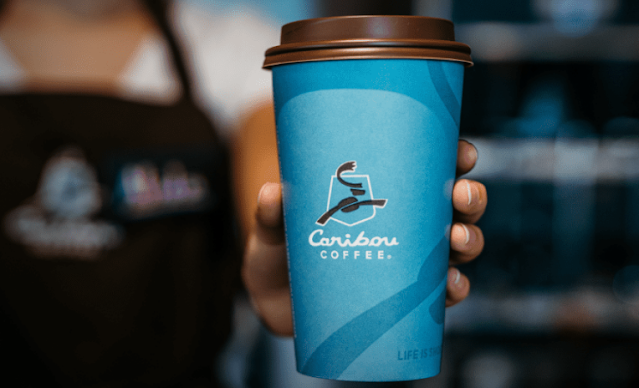 |
| Caribou Coffee |
Caribou Coffee Company is an American coffee company and chain. Caribou Coffee was founded in Edina, Minnesota in 1992. As of May 2015, the company operates 603 locations worldwide.
Caribou Coffee Founder John Puckett was working as a management consultant for Boston-based Bain & Company, helping to develop ideas and strategies for other businesses, when he decided he wanted to become an entrepreneur. After a trip to Alaska's Denali National Park, he and his wife, Kim, decided to raise money and start a coffee business. His wife kept her job at General Motors while John traveled to Minnesota to find the first site and raise the necessary funds.
Caribou's initial concept was a five-day-a-week schedule for downtown office workers, mimicking what was working in Boston. Puckett signed a lease for the first location, which was to be in the large Pillsbury Center office building. However, shortly thereafter, the building's owner decided not to sign the lease because another of the building's retail tenants had exclusive rights to sell coffee in the building and had threatened to sue them. As a result, financing for the store failed because it was dependent on that specific site. Puckett decided to look for an available suburban location, and the first Caribou Coffee store opened in Edina, Minnesota, a suburb of Minneapolis, in December 1992.
In 2003, Michael J. Coles was named CEO of Caribou Coffee.
On September 29, 2005, Caribou launched its initial public offering on NASDAQ under the name CBOU. CEO Michael J. Coles recalls, "Within two years of taking over, we grew to 337 stores in fourteen states and the District of Columbia. In less than three years, Caribou went from a company with negative sales growth to a public company listed on NASDAQ."
By 2006, Arcapita (formerly known as First Islamic Investment Bank) was the majority shareholder of Caribou Coffee. In 2002, Yusuf al-Qaradawi's involvement with the bank led to a protest by Caribou Coffee. That same year, al-Qaradawi resigned as chairman of the bank's sharia council.
By 2009, Caribou employed more than 6,000 people.
In December 2012, the company was taken private in a $340 million deal by German investment firm JAB Holding Company. Following the merger, it was stated that Caribou coffee would continue to operate as an independent company with its own brand, management team, and growth strategy, and Caribou would continue to be based in Minneapolis, Minnesota.
In May 2013, Caribou Coffee announced plans to close 80 stores in Ohio, Michigan, Pennsylvania, Washington D.C., Maryland, Virginia, Georgia, Illinois, and eastern Wisconsin, with an additional 88 in those locations to be converted to Peet's Coffee & Tea during 2013-2014. Caribou locations will remain open in California, Colorado, Georgia, Iowa, Illinois, Indiana, Kansas, Michigan, Minnesota, Missouri, North Carolina, North Dakota, Nebraska, Ohio, Oklahoma, South Dakota, Virginia, Wisconsin, Wyoming, and 10 international markets.
On August 5, 2021, Caribou announced that it had merged with Panera Bread and Einstein Bros. Bagels to form Panera Brands. After four years in the private sector, on November 8, 2021, Panera Brands filed the necessary documents for an initial public offering of stock.
5/ illy Coffee
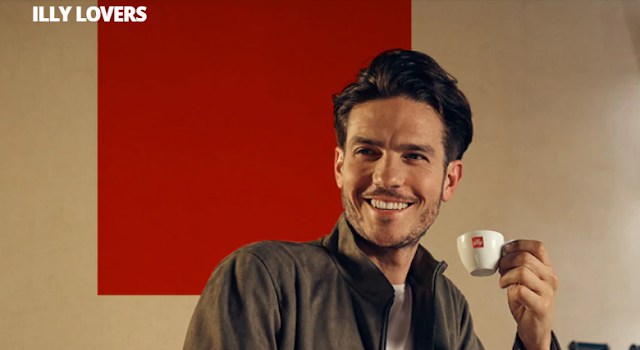 |
| illy Coffee |
Illycaffè S.p.A. (branded and stylized as illy) is an Italian coffee company specializing in espresso, with headquarters in Trieste. Illy markets its coffee worldwide in silver and red oxygen-free pressurized cans, operates a network of cafés in shopping streets, museums, and airports, and, since 2009, markets a range of coffee-flavored energy drinks under the name illy issimo.
Whether whole bean or ground, Illy offers medium, dark, and decaffeinated roast variants, as well as single-origin Arabica variants, depending on availability, all from Brazil, Guatemala, Ethiopia, Colombia, Costa Rica, Nicaragua, Tanzania, or India. In season, the company offers Idillyum, a low-caffeine Arabica grown in El Salvador. The company packages coffee in whole beans, pre-ground coffee, ESE pods, and iperEspresso capsules.
Illy was founded in 1933 by Francesco Illy, remains family-controlled, and employs approximately 2700+ employees (2015). Sales in 2016 were €460 million, and in late 2019 Illycaffee sought to expand into the U.S. market, offering a 20% stake in the company to potential investors.
Illycaffè S.p.A. markets coffee-related products in approximately 140 countries worldwide. The Illy Group consists of several companies located in North America, France, Germany, Spain, and the Benelux countries. The group employs approximately 800 people at these locations.
Since the late 1980s, Illy has been purchasing its green (raw) coffee beans directly from the source countries, rather than on the international commodity markets. The company buys exclusively Arabica coffee, especially from Brazil, the world's largest producer, but also from Colombia, India, and countries in Africa and Central America. The Università del caffè ("University of Coffee") in Illy offers free training to producers. In Brazil, a nine-month program (one week per month) includes 360 hours of classes. Illy buys between 10 and 30 percent of the coffee produced by farmers trained at the University of Coffee at a premium price but does not require farmers to enter into an exclusive contract with the company.
Illy was the first company in the world to receive Responsible Supply Chain Process (RSCP) sustainability certification from Det Norske Veritas (DNV).
From 2004 to 2012, Illycaffè funded the Ernesto Illy Trieste Science Award to recognize scientific researchers from the developing world, in collaboration with the World Academy of Sciences (TWAS). Illy was featured in the 2006 documentary Black Gold, in reference to his marketing of coffee from Ethiopia.
In an interview with the Wall Street Journal in June 2021, President Andrea Illy expressed interest in expanding the company's presence in the United States, the world's largest coffee market. He cited branding as a key focus for breaking into the market, as well as strengthening the company's distribution network both online and in major retailers such as hotels, restaurants, and coffee shops.
Illy coffees are blended from Arabica beans from several sources. The grounds are packaged in steel cans and pressurized with inert gas rather than air.
On May 22, 2009, in partnership with The Coca-Cola Company, illy launched a line of coffee-flavored energy drinks, marketed under the name illy issimo. In 2009, AirTran Airways began serving the drink to passengers, which has since been available in five flavors: caffè, sugar-free caffè, cappuccino, latte macchiato, and mochaccino.
In 1992, Francesco Illy, Andrea Illy's brother, launched The Illy Art Collection to collaborate with renowned artists and designers outside the coffee industry, producing art for the company's cups, developing company-branded coffee machines, and creating specialized advertising photography. Robert Rauschenberg, Francis Ford Coppola, David Byrne, Jeff Koons, Yoko Ono, and James Rosenquist (creator of the original Illy logo) as well as architects Matteo Thun and Luca Trazzi have contributed to the creation of art for the coffee cups. In 2006, the project was extended to Illy's coffee cans. Current versions of the latest cups and other promotional pieces are sold on the company's website, and the collection is displayed in a company gallery.
6/ Starbucks Coffee
 |
| Starbucks Coffee |
Starbucks Corporation is an American multinational chain of coffee shops and roasting facilities based in Seattle, Washington. It is the largest coffee chain in the world.
As of November 2021, the company had 33,833 stores in 80 countries, including 15,444 in the United States. Of Starbucks' U.S. stores, more than 8,900 are company-operated, while the rest are licensed.
The rise of the second wave of coffee culture is generally attributed to Starbucks, which introduced a wider variety of coffee experiences. Starbucks serves hot and cold beverages, whole bean coffee, micro-ground instant coffee, espresso, latte, whole leaf and loose leaf teas, juices, Frappuccino drinks, pastries, and snacks. Some offerings are seasonal or specific to the location of the store. Depending on the country, most stores offer free Wi-Fi.
Low-calorie and sugar-free products
In January 2008, Starbucks launched a line of "skinny" drinks, offering low-calorie and sugar-free versions of the company's beverages, which use skim milk and can be sweetened with a choice of natural sweeteners (such as raw sugar, agave syrup, or honey), artificial sweeteners (such as Sweet'N Low, Splenda, Equal) or one of the company's sugar-free syrups.
Non-dairy milk offerings
In 1997, Starbucks first offered non-dairy milk in its U.S. stores with the introduction of soy milk.
In 2007, Starbucks stopped using milk from cows treated with rBGH. In June 2009, the company began selling salads and baked goods without high fructose corn syrup or artificial ingredients. This initiative was intended to appeal to health- and budget-conscious consumers, as well as price points.
In 2015, Starbucks began serving coconut milk. In 2016, it began serving almond milk. In January 2020, oat milk became available nationwide. The company also offers non-dairy creamers at retail in partnership with Nestlé SA.
CEO Kevin Johnson stated in an interview in 2020 that, milk alternatives will be an important part of reducing carbon emissions. This effort has prompted vegans, environmentalists, lactose-intolerant people, and others to call on the company to remove the price markup on non-dairy milk drinks. PETA has encouraged sit-ins at Starbucks locations and has purchased Starbucks stock to draw attention to what they see as an unfair charge. A Starbucks Canada spokesperson told ET Canada that customizations such as added flavors, non-dairy drinks, or an extra shot of espresso, will result in additional charges.
In December 2020, Starbucks announced that it would offer Oatly Oat Milk in all U.S. stores beginning in spring 2021.
Energy drinks
In January 2022, Starbucks launched a line of canned energy drinks called "Baya." The drink contains caffeine from the coffee fruit.
Seasonal cups
Each year between November and January, Starbucks releases new products for the holiday season, including new paper cups with various festive designs.
Barrel-Aged Coffee
In March 2017, Starbucks announced the launch of two new limited-edition specialty beverages made from beans aged in whiskey barrels at its Seattle roastery. Starbucks' barrel-aged coffee will be sold with a small batch of unroasted Starbucks Reserve Sulawesi beans, which are then hand-fed into Washington state whiskey barrels.
Locations
Countries with Starbucks locations as of June 2019.
The company is headquartered in Seattle, Washington, U.S., where 3,501 people were employed as of January 2015. The main building of the Starbucks complex was previously a Sears distribution center.
As of September 2020, Starbucks had 32,660 locations in 79 countries and territories on six continents
7/ Peet's Coffee
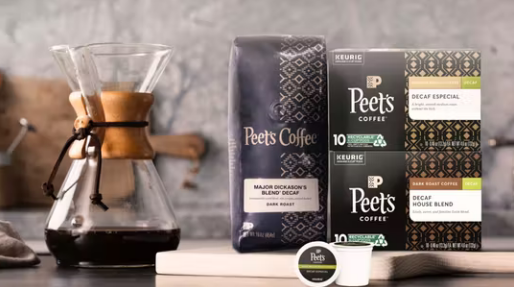 |
| Peet's Coffee |
Peet's Coffee is a San Francisco Bay Area-based roaster and specialty coffee retailer owned by JAB Holding Company. Founded in 1966 by Alfred Peet in Berkeley, California, Peet's introduced its darker roast Arabica coffee to the United States in blends including French Roast and espresso suitable grades. Peet's offers freshly roasted beans, brewed coffee, and espresso drinks, as well as bottled cold brews. In 2007, Peet's opened the first LEED Gold certified roastery in the United States. Peet's coffee is sold in more than 14,000 grocery stores across the United States.
By November 2021, the company had 200 stores in the United States.
Locations
As of 2018, Peet's operates more than 200 locations in 11 states-California, Washington DC, Virginia, Tennessee, Nevada, Washington, Oregon, Colorado, Illinois, Massachusetts, and Maryland-and has expanded into China by opening a location in Shanghai.
Peet's previously operated in Pennsylvania, Ohio, and Michigan, but Peet's closed those stores in 2014 to focus on the regions where it is expanding.
As of December 2016, Peet's coffee was sold in 14,000 grocery stores, universities, and wholesalers across the United States. They had more than a dozen coffee bar locations in Chicago and Boston, as well as 23 in the Washington, D.C. area at that time.
8/ Kahawa 1893
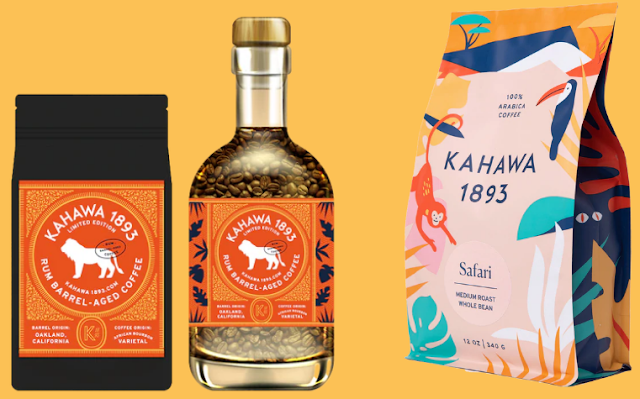 |
| Kahawa 1893 |
9/ Equal Exchange
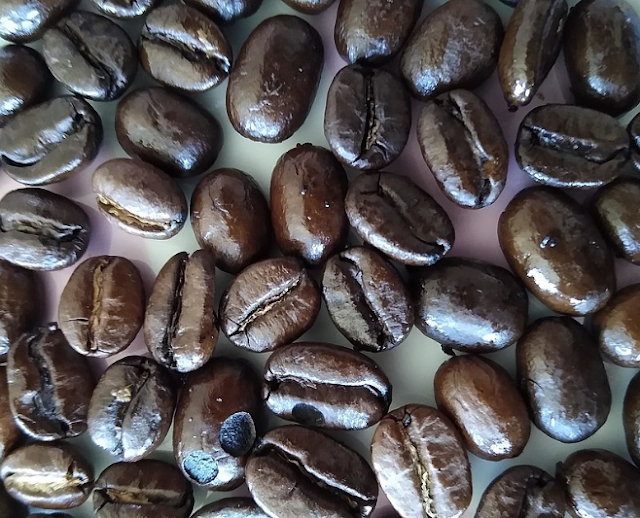 |
| Equal Exchange |
Coffee
10/ La Colombe Coffee Roasters
 |
| La Colombe Coffee Roasters |
La Colombe Coffee Roasters (originally La Colombe Torrefaction) is an American coffee roaster and retailer based in Philadelphia. The company currently has coffee shops in Philadelphia, New York, Washington D.C., and elsewhere. La Colombe is representative of third-wave coffee roasters and was an early pioneer in direct trade coffee sourcing.
Products and collaborations
La Colombe's store in Fishtown, Philadelphia
Products
In 2016, the company began offering a canned version of Draft Latte, a cold-pressed espresso and frothed milk latte first offered on tap in their cafes. The drinks are available for purchase at select retailers across the U.S., as well as at all La Colombe coffee shops. Draft Lattes are produced at La Colombe's Norton Shores, Michigan facility. The latte cans were designed by La Colombe CEO Todd Carmichael and produced by Philadelphia-based Crown Holdings. A unique plastic lid that resembles a coffee cup adorns the lid. The Draft Latte is produced in several flavors.
Other products include Different Drum, a coffee-infused rum produced in a micro-distillery located in its Fishtown, Philadelphia, cafe, and a line of La Colombe single-origin and blended roast coffees, which are available for purchase in retail stores or on the company's website.
The company also produces a line of ready-to-drink cold brew available in grocery stores in large bottles, as well as cold brew concentrate.
Haiti Coffee Academy
In 2013, La Colombe worked with the Clinton Foundation to found the Haiti Coffee Academy. The organization aims to improve the livelihoods of coffee farmers in Haiti through smallholder training programs, a demonstration farm and nursery, and efforts to strengthen the supply chain for local and export markets for Haitian coffee.
Other collaborations
La Colombe collaborated in 2016 with Yards Brewing Company, another Philadelphia-area company, to produce a coffee stout to be served at local Shake Shack locations.
The company collaborated in 2016 with Icelandic brewer Einstök and again with Yards on Snorri's Awakening, a coffee pale ale.
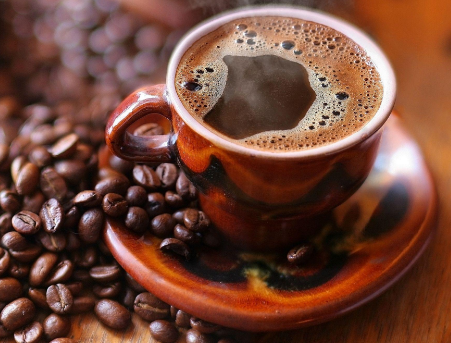






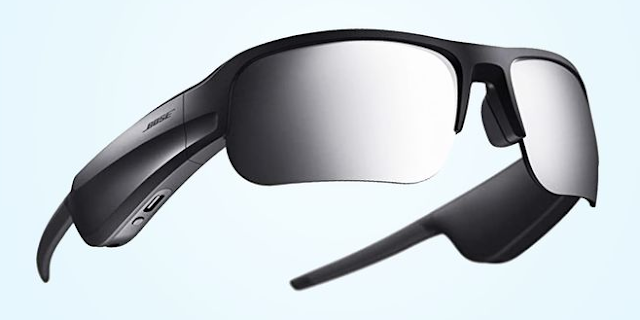



Comments
Post a Comment